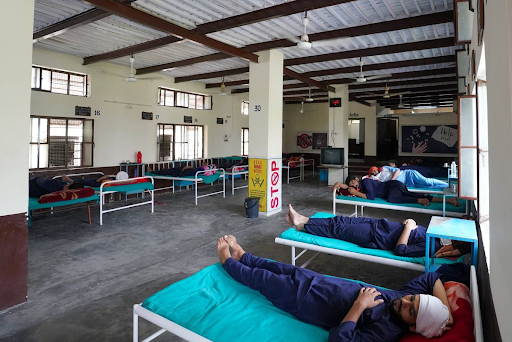Addiction is a complex challenge that affects every part of a person’s life. It can harm relationships, career prospects, and health. Yet, with the right approach, recovery is possible. Drug addiction rehab provides a structured path toward healing. It combines medical support, psychological care, and personal growth strategies. For many, entering rehab marks the first step toward reclaiming control over their lives.
Understanding Drug Addiction Rehab
Drug addiction rehab refers to a program designed to help individuals stop using harmful substances. It involves a combination of medical treatment, therapy, and behavioral support. Rehab centers focus on both physical detoxification and emotional recovery. Effective programs create a safe environment where patients can confront their addiction without judgment. Understanding this foundation is essential for anyone seeking lasting change through drug addiction rehab.
Medical Approaches in Drug Addiction Rehab
Medical intervention is a crucial part of effective drug addiction rehab. Detoxification helps manage withdrawal symptoms safely under professional supervision. Doctors may prescribe medications to reduce cravings or prevent relapse. Monitoring vital signs and providing ongoing care ensures patients remain healthy during recovery. The medical aspect of drug addiction rehab forms the backbone of a successful treatment plan, supporting individuals as they rebuild their lives.
Therapeutic Strategies in Drug Addiction Rehab
Therapy plays an equally important role in drug addiction rehab. Individual counseling allows patients to explore underlying causes of addiction. Group sessions provide community support and shared experiences, reducing feelings of isolation. Cognitive-behavioral therapy helps patients recognize triggers and develop coping strategies. These therapeutic approaches ensure that recovery is not just about stopping substance use but also about building emotional resilience.
Lifestyle Changes Encouraged by Drug Addiction Rehab
Effective drug addiction rehab also emphasizes healthy lifestyle changes. Nutrition, exercise, and mindfulness practices strengthen the body and mind. Patients learn skills for stress management and emotional regulation. Creating structured daily routines helps prevent relapse and fosters long-term wellness. These changes ensure that recovery extends beyond the program and into everyday life.
Family and Social Support in Recovery
Recovery from addiction does not happen in isolation. Family involvement and social support are crucial elements of successful rehab. Loved ones participate in counseling sessions and educational workshops. Strengthening relationships builds a network of accountability and encouragement. Social support complements professional treatment, making recovery a shared journey rather than a solitary struggle.
Aftercare Programs for Sustained Recovery
Rehab is only the beginning. Aftercare programs provide continued guidance after leaving the facility. Outpatient therapy, support groups, and follow-up sessions help prevent relapse. Structured aftercare ensures that patients maintain progress and adapt to challenges in their daily lives. A strong aftercare plan is a hallmark of effective drug addiction rehab, ensuring transformation lasts well beyond the initial treatment.
Conclusion
Drug addiction rehab transforms lives by combining medical care, therapy, lifestyle changes, and social support. It provides individuals with the tools and strategies necessary for lasting recovery. By addressing both the physical and psychological aspects of addiction, rehab empowers people to regain control of their health, relationships, and future. For anyone struggling with substance abuse, seeking professional rehab can mark the beginning of a new, fulfilling chapter.

